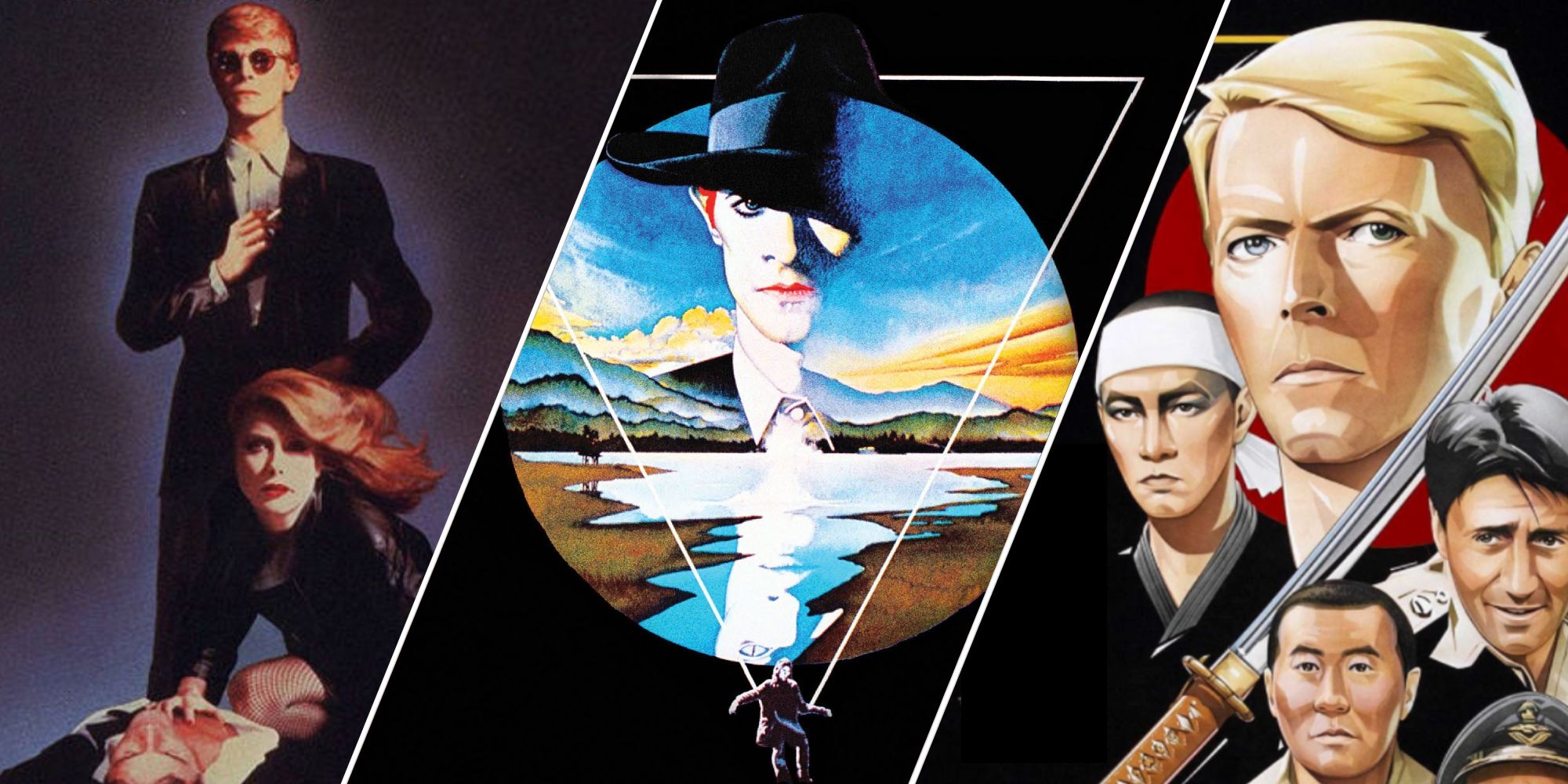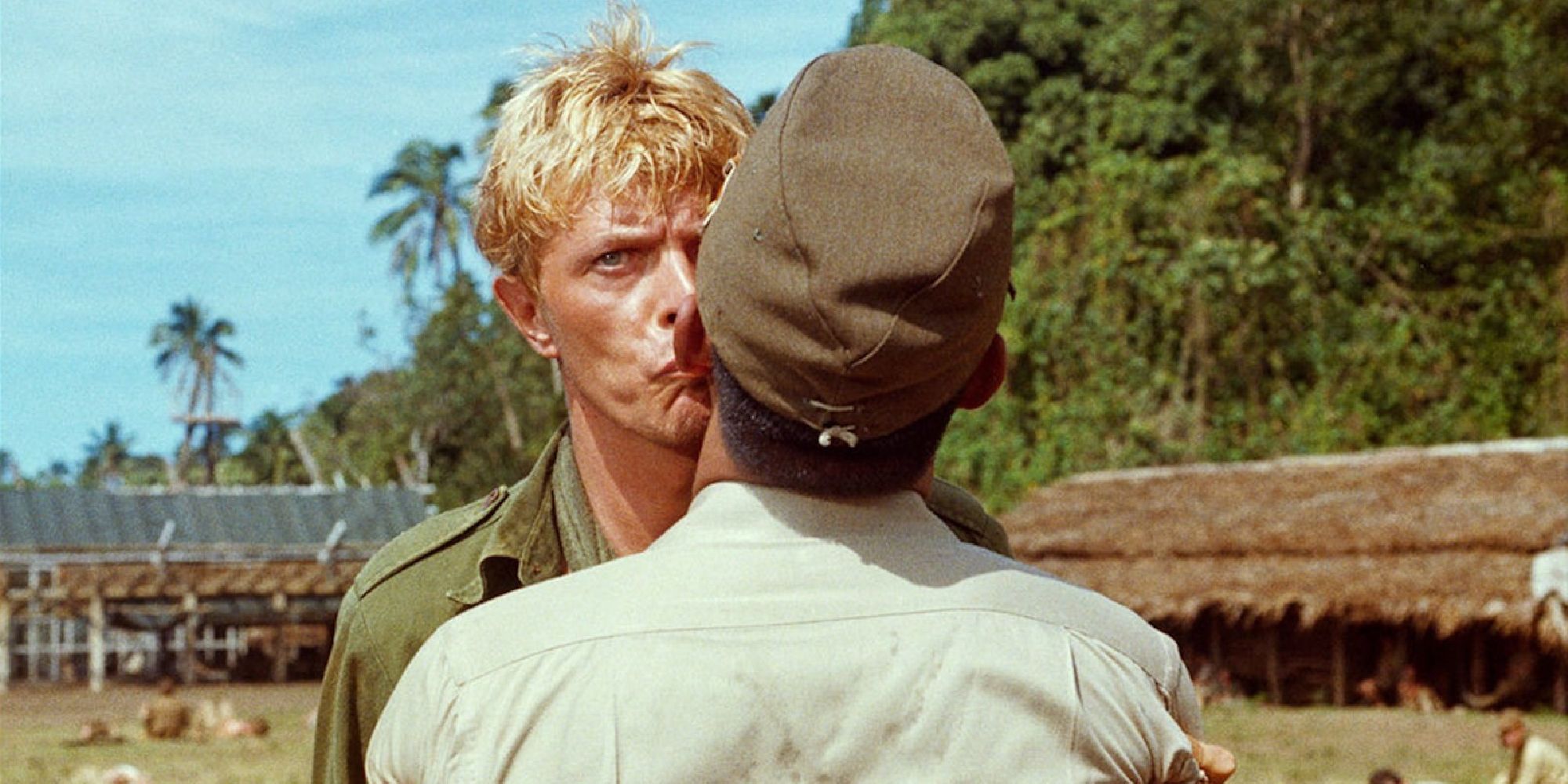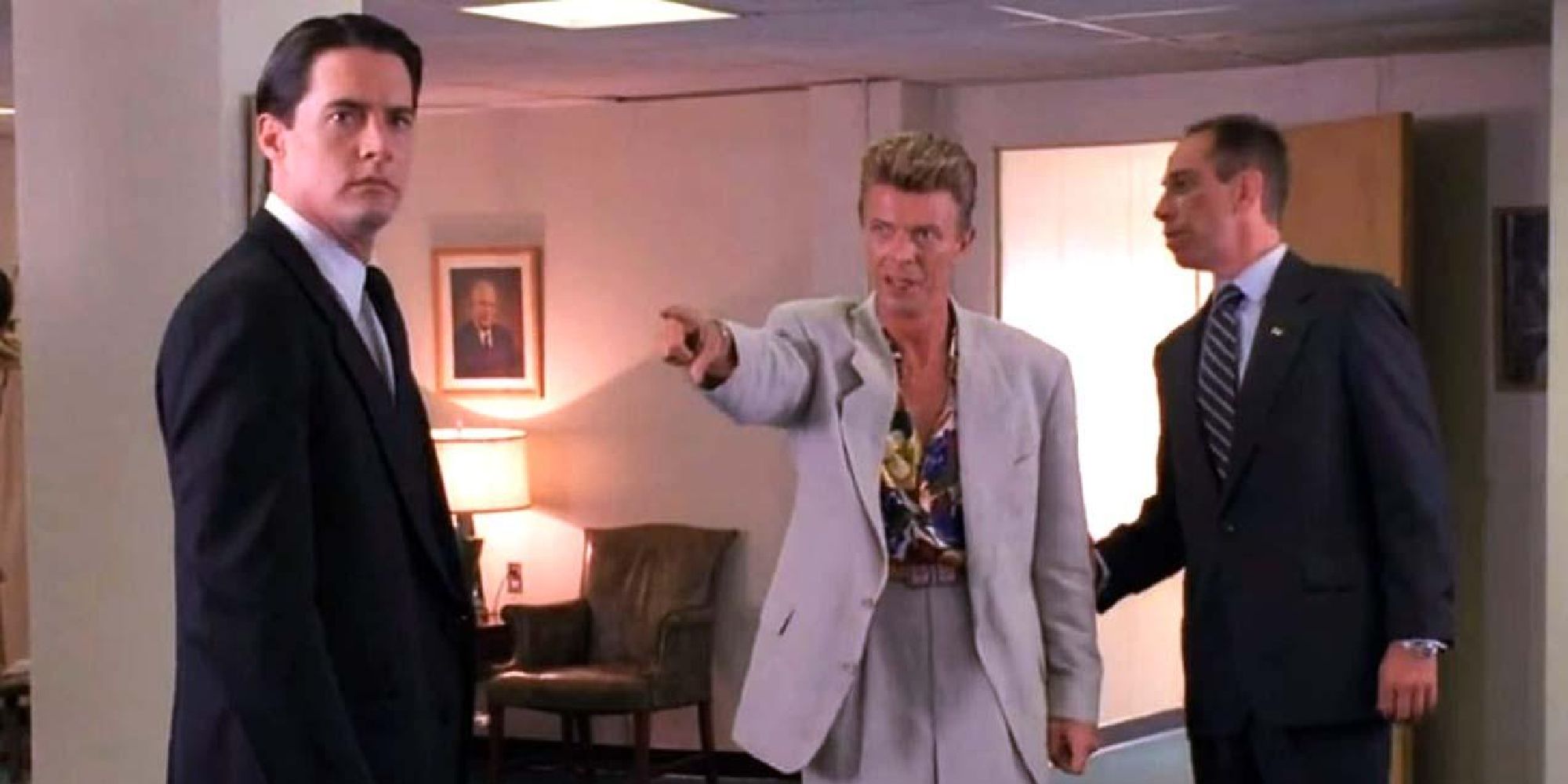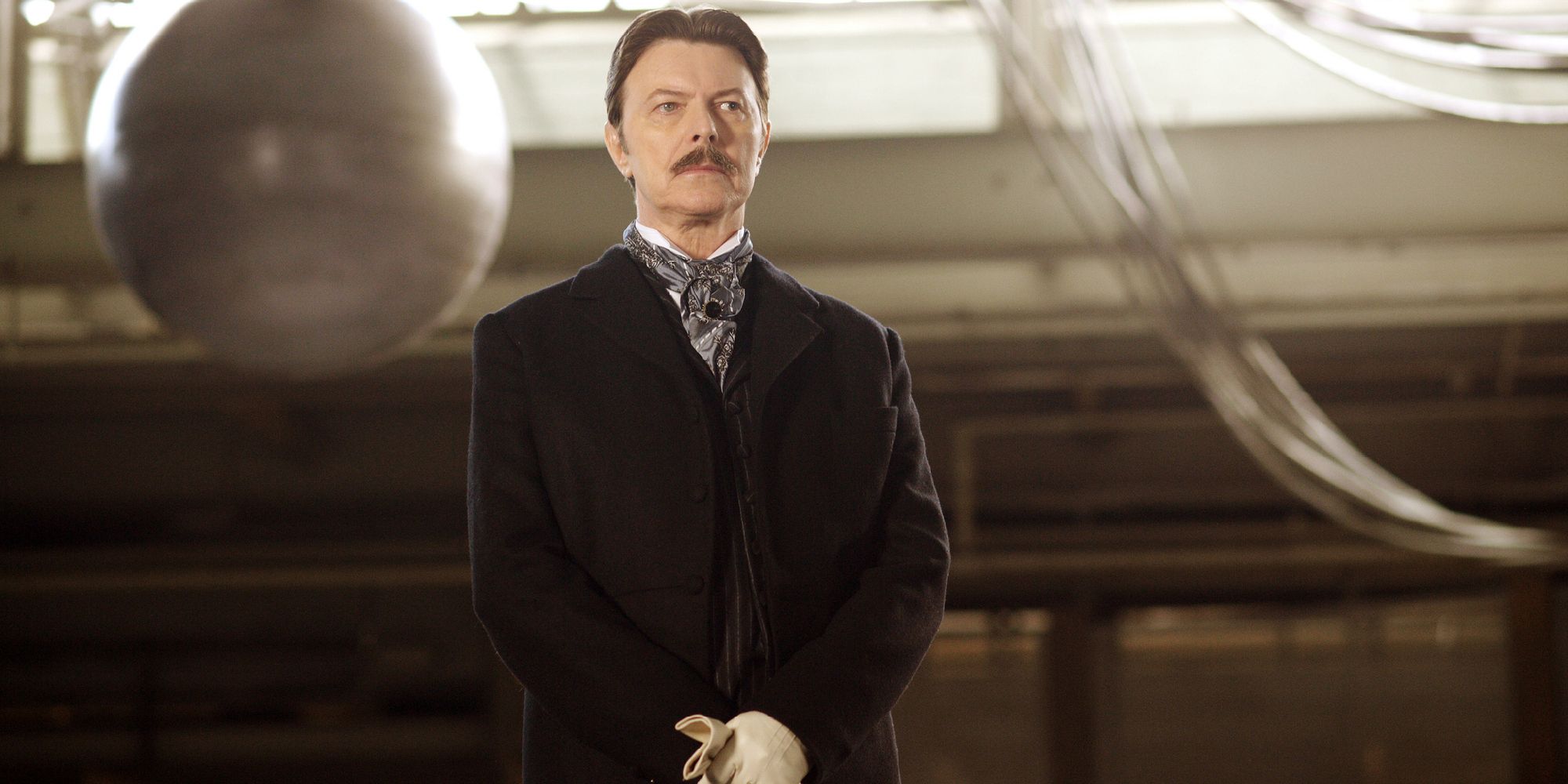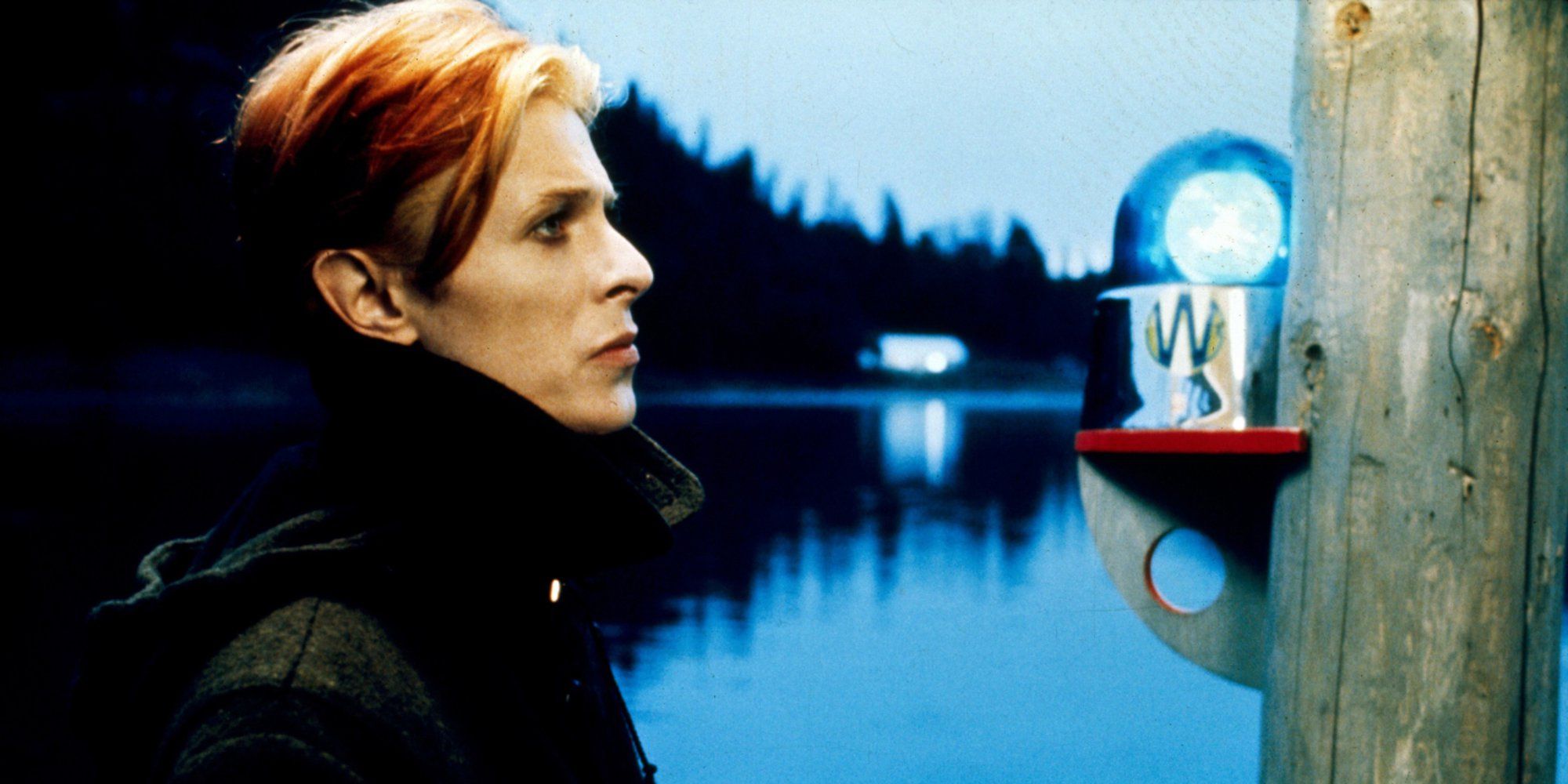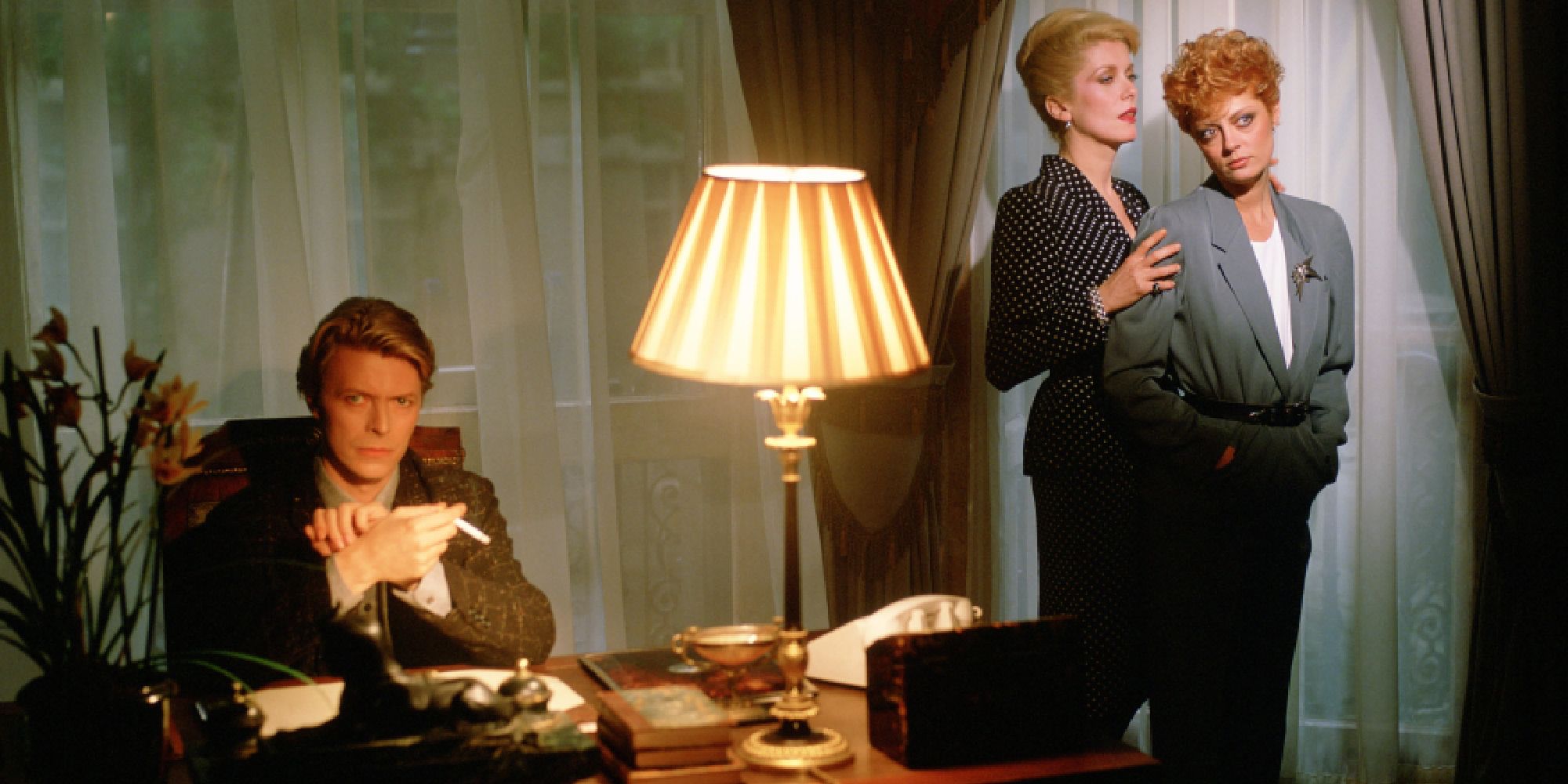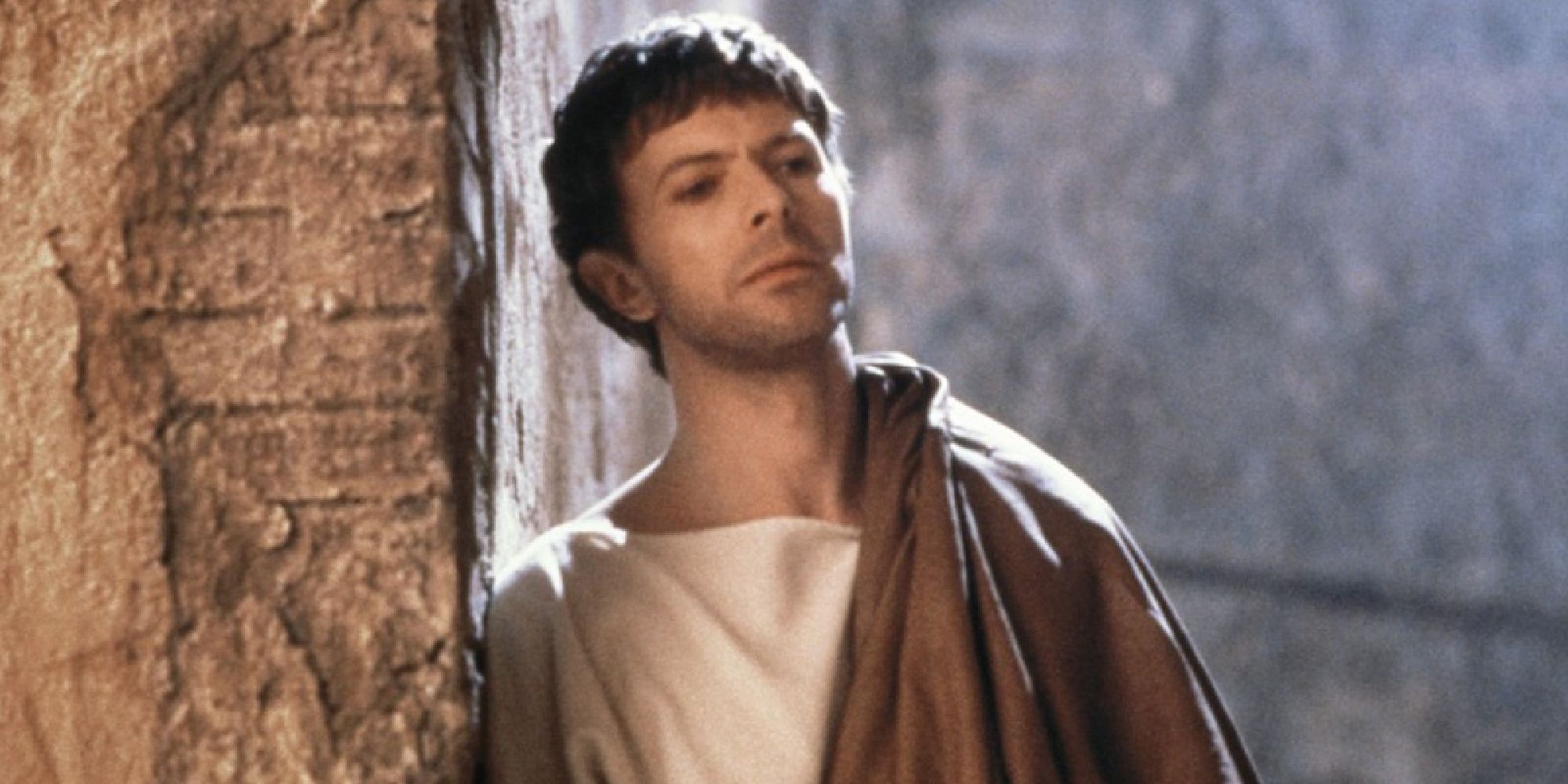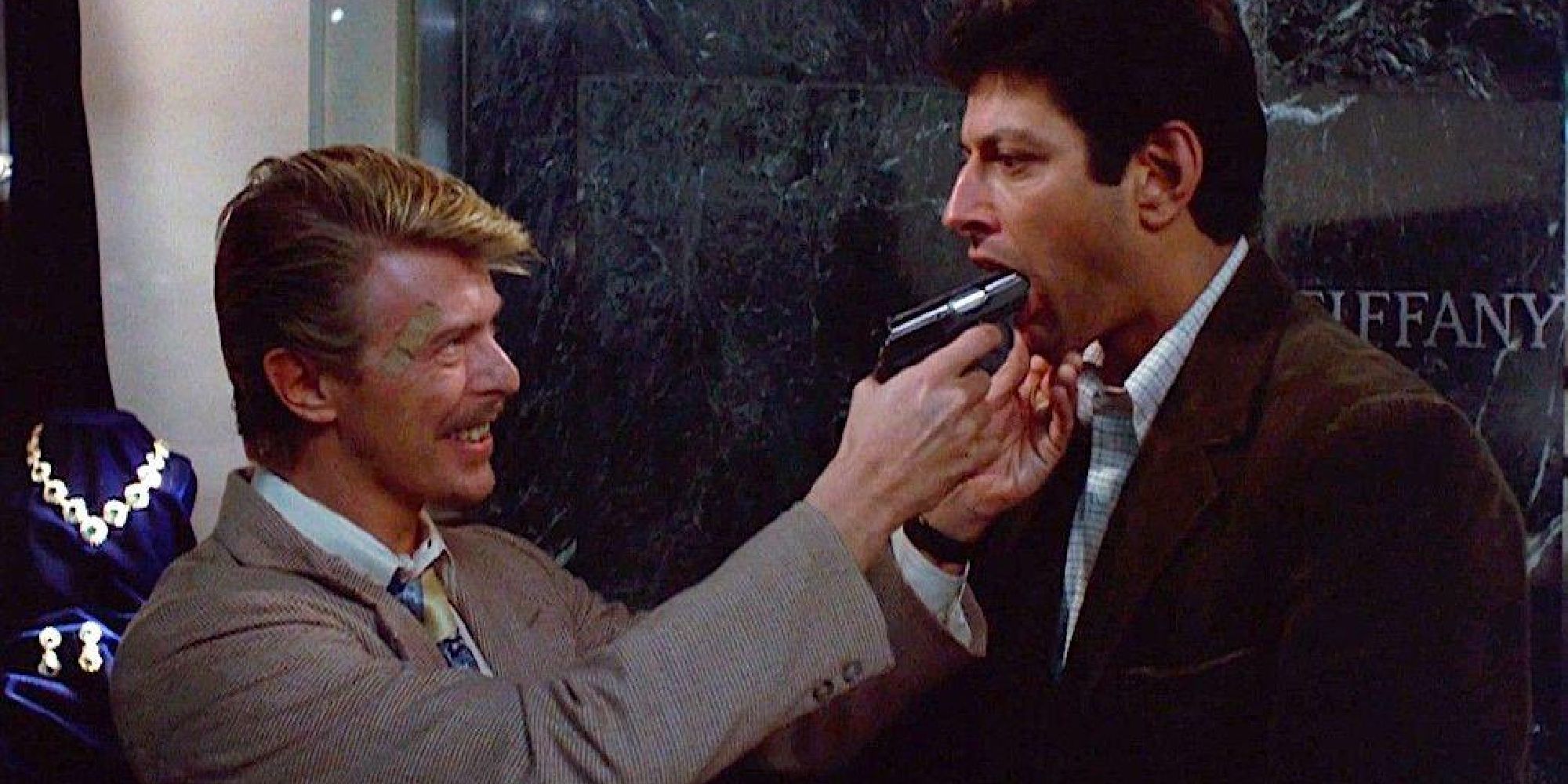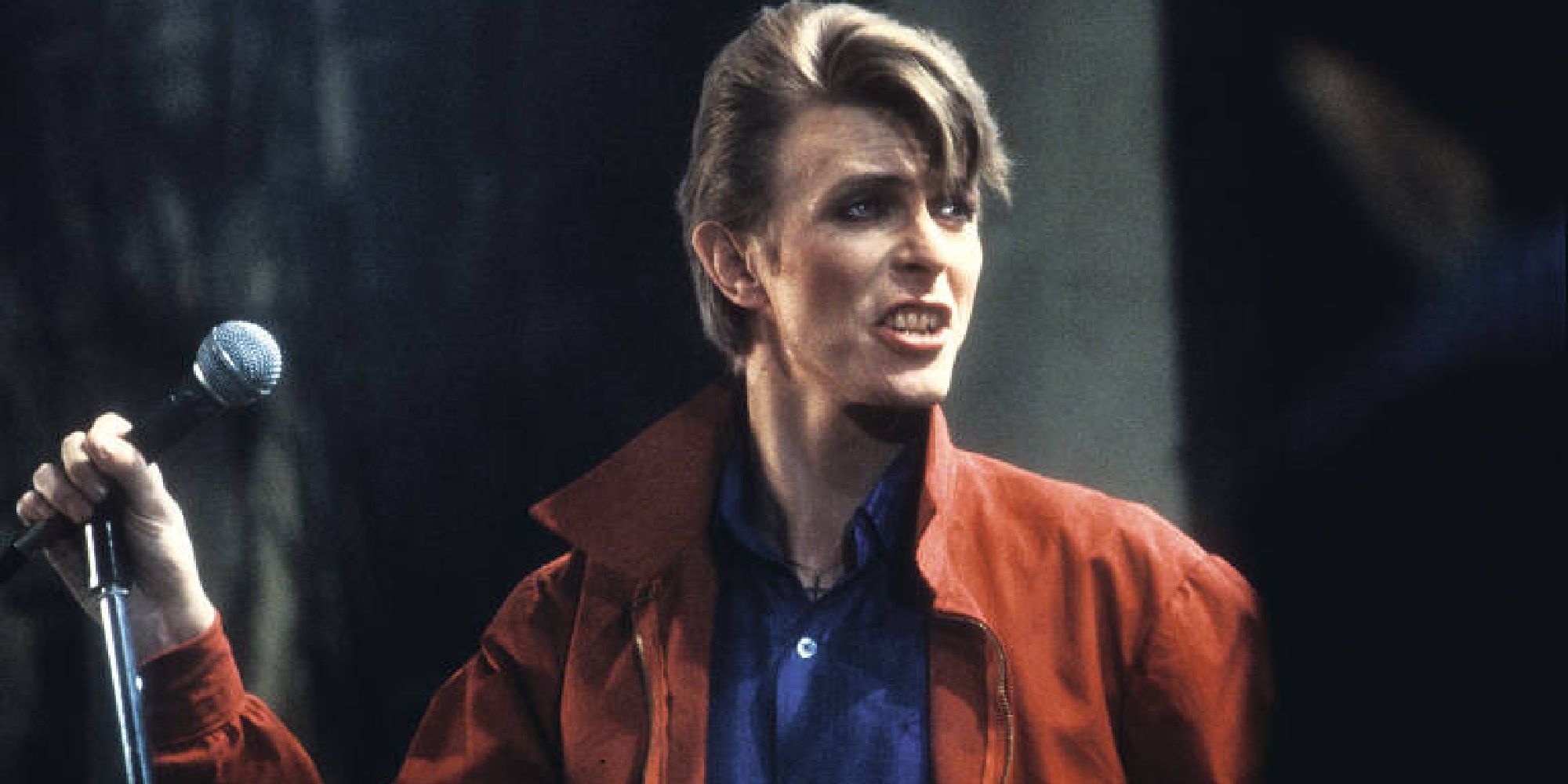David Bowie will always be best known for his music, understandably so. He redefined popular music, wrote and performed many of the greatest pop/rock songs of all time, released 25 albums (many of them classics) over almost 50 years, and continually changed his style when it came to his appearance and the sound of his music.
He was also a pop culture icon, known for adopting different personas at different stages of his career, effectively "acting" as different versions of Bowie, the musician. And he had traditional acting roles, too, with perhaps his most famous role being that of Jareth The Goblin King in 1986's Labyrinth. Beyond that film, however, are numerous other performances worthy of your attention. With the release of a new Bowie documentary, Moonage Daydream, now's as good a time as any to revisit his lesser-known (but equally iconic) roles.
Major Jack Celliers in 'Merry Christmas, Mr. Lawrence' (1983)
A prisoner of war movie that spends equal time on both sides of the conflict — with half its dialogue in Japanese and the other half in English — Merry Christmas, Mr. Lawrence is an incredibly unique war film. Bowie is part of an ensemble cast and plays a rebellious British soldier named Jack Celliers, who's sent to a harsh prisoner of war camp run by Japanese forces on the island of Java. There, he disrupts the camp's routines and attracts the attention of Captain Yonoi (played by Ryuichi Sakamoto, who's also a musician/occasional actor), who's drawn to Celliers for reasons he can't fully explain.
The film explores the homoerotic tension between the two, though never in a way that's too obvious. Even if it's just under the surface, it's still a radical topic to explore in a war film. The film's primary focus is on the clash of cultures between the Japanese forces and the British prisoners and the futility of war, explored in the film's soul-crushing final act. It's a gripping but heavy film; the only levity might come from when Bowie's character ironically tells another person: "I wish I could sing," at one point.
Phillip Jeffries in 'Twins Peaks: Fire Walk with Me' (1992)
David Lynch's bizarre, harrowing, and often misunderstood follow-up (of sorts) to TV's Twin Peaks is a film unlike any other. It's part prequel, part sequel to the iconic (and canceled too soon) show, and would already be a well-remembered film from Lynch even if it didn't feature a scene-stealing turn by David Bowie in one of the film's most surprising moments.
Despite never featuring in the show's first two seasons, Bowie fits perfectly into the dreamy, deranged world of Twin Peaks. His character, Phillip Jeffries, is said to have disappeared, only for him to reappear early in the film. He warns the characters that protagonist Dale Cooper may not be who they think he is and vaguely tries to explain his earlier disappearance. And then he seems to disappear for good after just a few minutes of screen time. It's a testament to Bowie's screen presence that he sticks with you long after the film finishes, even with such a minor part.
Nikola Tesla in 'The Prestige' (2006)
The Prestige is the exact kind of mind-bending, twist-filled psychological thriller that Christopher Nolan seems like he was born to make. The plot mostly concerns the rivalry between two magicians, gradually exposing why their conflict began and showing the depths they're willing to sink to ensure the other's downfall.
Bowie's role here is a supporting one, with just a few scenes, but his impact is felt through his depiction of the real-life historical figure, Nikola Tesla. Tesla's intelligence and forward-thinking ability have made the inventor/scientist seem like a man out of his time and something of an enigma, which makes the equally mysterious Bowie the perfect person to display him on-screen.
Thomas Jerome Newton in 'The Man Who Fell to Earth' (1976)
David Bowie's role in The Man Who Fell to Earth as the alien, Thomas Jerome Newton, might count as the only time Bowie got to play the indisputable lead role in a feature film. It's a movie with a title that pretty well sums up the plot; Newton comes to Earth, hoping to find a way to transport water back to his dying home planet. Earth ends up being a brutally punishing and unfair place for him, as he is exploited and mistreated by most of the people he comes into contact with.
Filmed at a time when Bowie was particularly thin and in a somewhat spaced-out state, mentally, he ends up being a perfect fit for the role. He undeniably has an otherworldly quality and excels at playing an alien lifeform who is both pragmatic and sympathetic. It's not a particularly explosive or action-packed science-fiction film, but it should prove to be an engrossing watch for those who don't mind their sci-fi slow and character-focused.
John Blaylock in 'The Hunger' (1983)
Whoever plays David Bowie's role in the upcoming remake of The Hunger has some big shoes to fill. While Bowie's role as a centuries-old vampire is a little brief, considering he's billed second in the credits, he makes every minute count and manages to fit into the role of a mysterious, undead bloodsucker with ease.
In its second half, the plot pivots to become more about his lover and a doctor (Catherine Deneuve and Susan Sarandon) but is worth sticking with, even if you're mostly there for Bowie. It's a particularly dark and steamy vampire film, and even if the strong 1980s aesthetic can't help but date it a little, it remains a good watch for fans of vampire-themed horror movies.
Pontius Pilatus in 'The Last Temptation of Christ' (1988)
Similar to how David Bowie was more than just a musician, filmmaker Martin Scorsese is more than just a director of gangster movies. An indicator of this is The Last Temptation of Christ, which, funnily enough, also starred Bowie in a small role, with a story that looks at the story of Jesus Christ—and his final days—in a new light, humanizing his struggles and showing him to be someone who had to fight temptation just as a regular person might (which is what made it somewhat controversial upon release).
Bowie portrays Pontius Pilatus, the governor who led Jesus's trial and ultimately sentenced him to be crucified. As with many iconic Bowie roles, he's only in this almost three-hour film for a handful of scenes but leaves a lasting impression. And as with other actors in the film, his accent might not be historically accurate, but his performance is powerful.
Colin Morris in 'Into the Night' (1985)
Into the Night is a very strange movie and quite tonally messy. It's a dark comedy/crime/romance/thriller that stars Jeff Goldblum and Michelle Pfeiffer as two people who meet in unusual circumstances and end up running from a gang of dangerous criminals.
One of the many obstacles they run into during their flee for survival is Colin Morris, played by a scenery-chewing Bowie. While the film might not be great, Bowie's scenes are, and he's clearly having a great deal of fun in a small but intensely villainous role. The film's probably worth a watch for the sheer novelty of seeing him and Goldblum on-screen together.
Himself in 'Christiane F.' (1981)
While Bowie's brief but memorable appearance in the gritty Christiane F. isn't the only time he appeared as himself on-screen, it's likely his most memorable. He's idolized by the film's protagonist, Christiane, who sees him live in concert shortly before using heroin and facing the downward spiral of addiction, which is what the film primarily focuses on.
It's a dark and incredibly disturbing movie, and while Bowie's stage performance makes for a fun scene, it starkly contrasts the darkness of the film's back half. As the film gets more harrowing, the catchy Bowie music disappears from the soundtrack, and in its place is one of cinema's hardest-to-watch depictions of drug addiction.

